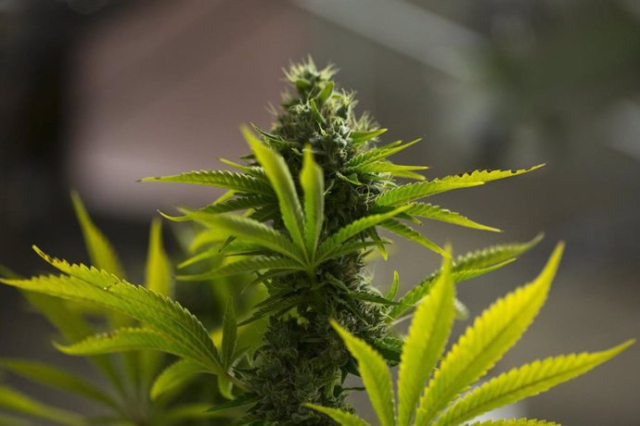Marijuana, scientifically known as Cannabis sativa, has been used by various cultures for thousands of years, both for its medicinal and recreational properties. Today, marijuana continues to be the subject of extensive debate and study, while its legality and social acceptance vary considerably in different parts of the world. In this article, we will explore the many uses of marijuana, ranging from its medicinal applications to its recreational use and other lesser-known uses.
Medicinal use.
The medicinal use of marijuana dates back to ancient times. Cultures such as China, India and Egypt used this plant to treat various diseases. Today, medical marijuana has gained recognition for its ability to relieve a variety of symptoms and medical conditions.
Treatment of Chronic Pain.
One of the most common uses of medical marijuana is the treatment of chronic pain. Cannabinoids, active marijuana compounds such as THC (tetrahydrocannabinol) and CBD (cannabidiol), interact with the body's endocannabinoid system, which plays a crucial role in pain regulation. Studies have shown that marijuana can be effective in reducing pain in conditions such as arthritis, fibromyalgia, and neuropathy.
Management of Cancer Symptoms.
Marijuana is also used to relieve symptoms associated with cancer and its treatment. Patients receiving chemotherapy may experience nausea, vomiting, and loss of appetite. THC has been shown to be effective in reducing nausea and stimulating appetite, thus improving the quality of life of these patients. Additionally, there is ongoing research into the potential anti-cancer properties of CBD and other cannabinoids.
Treatment of Neurological Disorders.
Medical marijuana is used in the treatment of various neurological disorders. CBD, in particular, has shown promise in the treatment of epilepsy, especially severe forms such as Dravet syndrome and Lennox-Gastaut syndrome. The FDA (U.S. Food and Drug Administration) has approved Epidiolex, a CBD-based medication, for these disorders. Additionally, marijuana is used to manage symptoms of multiple sclerosis, such as muscle spasms and stiffness.
Mental health.
The use of marijuana in the treatment of mental health disorders is a growing area of study. Some studies suggest that CBD may have anti-anxiety and antidepressant effects, and its use in the treatment of anxiety and depression is being investigated. However, it is important to note that the use of high-THC marijuana can aggravate certain mental disorders, such as schizophrenia, so more research is required to fully understand its effects.
Recreational Use.
The recreational use of marijuana is perhaps the best known and most controversial. Many people use marijuana for its psychoactive effects, which include euphoria, relaxation, and altered perception of time and space. These effects are mainly caused by THC.
Legalization and Regulation.
In recent decades, several countries and states have legalized marijuana for recreational use, recognizing its potential economic benefits and reducing the burden on the judicial system. Regulating marijuana allows governments to control quality and distribution, as well as collect taxes that can be used to fund public programs.
Social and Cultural Impact.
Marijuana has had a significant impact on culture and society. From music and art to film and literature, marijuana has influenced various forms of cultural expression. However, its recreational use also raises public health concerns, including dependency and long-term mental health effects.
Other Uses of Marijuana
Industrial use.
Hemp, a variety of Cannabis sativa with low THC content, has numerous industrial uses. Hemp can be used to make paper, textiles, biofuels, biodegradable plastics and construction materials. Growing it is also beneficial for the environment, requiring less water and pesticides than other crops and improving soil health.
Cosmetics and Wellness.
Marijuana, and more specifically CBD, has found its place in the cosmetics and wellness industry. Beauty and personal care products containing CBD are gaining popularity due to their anti-inflammatory and antioxidant properties. These products include creams, oils, lotions, and serums that promise to improve skin health and alleviate conditions such as acne, psoriasis, and dermatitis.
Feeding.
Marijuana is also used in the food industry, although mainly in the form of CBD-infused products. Foods and drinks containing CBD are promoted for their purported health benefits, including reducing stress and anxiety, and improving sleep. However, it is important to consume these products with caution and in accordance with local regulations.
Challenges and Considerations.
Legality.
The legality of marijuana varies widely around the world. While some countries and states have legalized its medicinal and/or recreational use, others maintain strict prohibitions. This legal disparity creates challenges for researchers, patients, and consumers. It is crucial to be informed about local laws before using or possessing marijuana.
Health and security.
The use of marijuana is not without risks. Excessive consumption can lead to dependence, memory problems and cognitive impairment, especially in young users. Additionally, smoking marijuana can affect lung health. For these reasons, it is important to consume marijuana responsibly and look for safer alternatives, such as edibles or oils.
Investigation and development.
Despite numerous studies on marijuana, there are still many unanswered questions about its long-term effects and therapeutic applications. Continued research is crucial to fully understanding the benefits and risks of marijuana. Regulation and legalization can also facilitate more extensive and controlled studies.
Marijuana is a versatile plant with a wide range of uses ranging from the treatment of medical conditions to recreational and industrial use. As attitudes and laws about marijuana continue to evolve, its use and acceptance are likely to expand even further. However, it is essential to approach its consumption with caution and be well informed about the effects and related regulations. Marijuana has the potential to offer many benefits, but it also poses challenges that must be carefully managed.






